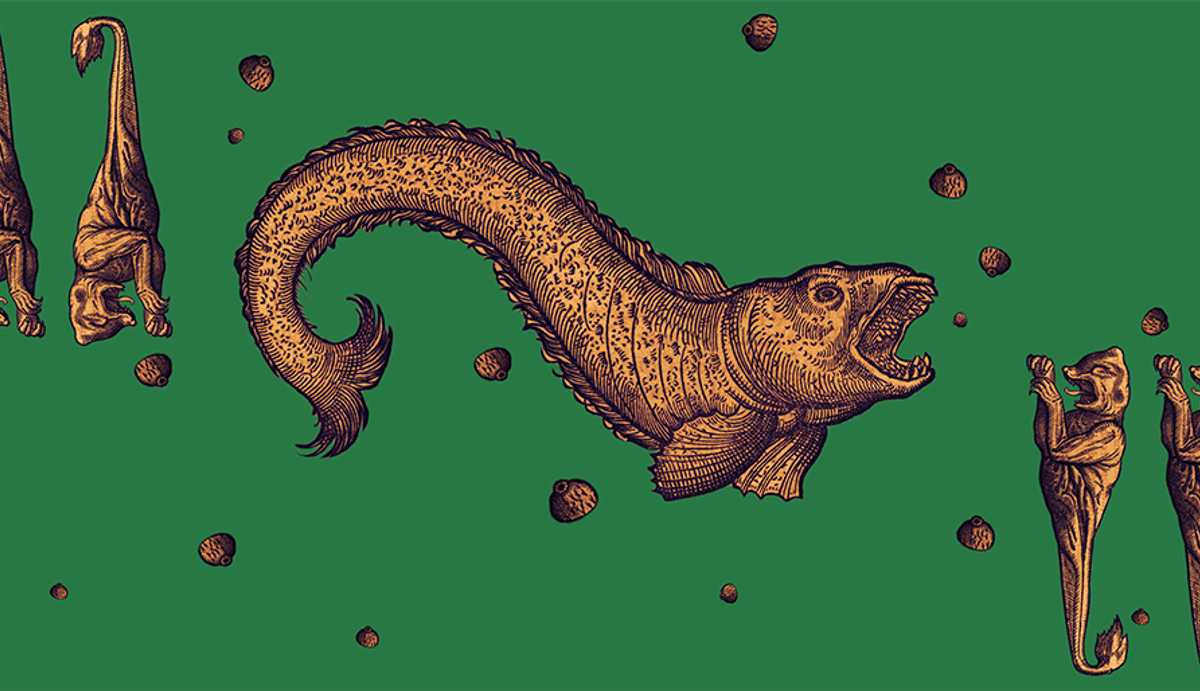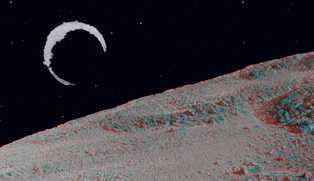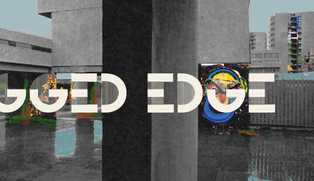“The monster is that being who refuses to adapt to her circumstances. Her fate. Her body” – Bhanu Kapil, Incubation: a Space for Monsters “I watched this being who had erupted from my brow get on her knees, open her mouth, and drink the red river that surrounded us. With every drop of blood, she became more excited, her black skin more radiant. At one point she looked up at me, smiling with all her teeth exposed, her red tongue dangling, and I understood that she hadn’t manifested to kill. It was pleasure she sought, the sweet savour of life. It was at that moment that I recognized her as myself Kali, I whispered.” – Vivek Shraya, She of the Mountains
*
My grandmother said: Little girls should be seen and not heard. I said: Little girls should be heard but not seen. I was a child, and this was all I could say. But in that innocent reversal is the trajectory of so many lives: for the roar of our voices to inhabit a space beyond the reaches of our bodies. To be heard when the world would prefer that we remain silent. This is the life of the artist, the maker, the writer: to exist in some way outside of ourselves, to inhabit our monstrosity. My grandmother’s dictum was an inheritance, passed down to her in the most intimate ways. It drew the boundaries of her limited resistance, but I can trace its source clearly. It begins with ships laden with dark bodies, hauled like cargo across the face of the earth. It ripens in schools and churches that worked tirelessly to erase cultural memory. It bore fruit during her first trip to England when I was in my early teens. When she asked what sort of souvenir she could bring back for me I asked for “an old book”. She brought back a doll of Queen Elizabeth II (last empress of India) instead. So I placed that little white lady in her plastic cylinder to protect her plastic body on top of my bookshelf, where she could silently disapprove of the ways in which I was seen and heard. I want you to know that colonialism is a plastic queen on your bookshelf, her blue eyes and pale skin a constant reminder of your lack. The plastic queen is the symbol of my failure to assimilate, my failure to live up to all the dreams implanted in the bodies of my brown family. For too long we have lived in the shadow of plastic queens. I am here to eat them alive. There were other signs of my monstrosity. The way the principle on my first day of elementary school couldn’t pronounce my first name as she introduced me to the class. The way my teacher didn’t even bother to try to pronounce my last name correctly when I graduated college. The way my aunts said I had a big mouth and my uncle said I was “Malo come back.” Malo was my grandfather’s mother, a woman who had a hard life, which made her strong and mean. And that’s all I know about her. I have a picture of her – stout, wide, like an immovable object. Like a woman who could pick up a stick and beat a man senseless. Like a woman who could get shit done. All I really have is my imagination of her. But there is something inside of me that I have named Malo, it is the part of me that will not quell. I’m not a special snowflake and adolescence was hard. Then university. Then graduate school. And all the while Malo sat in my chest like a stone. Which wasn’t to say that I was silent, unseen. But like many monsters, I had a death wish, a desire for the things that only self-destruction could bring: to be normal, to fit in. But my body will not let me fit in. Men stop me on the street to ask what I am. I want to say: I am an abomi/nation. A monster is really a portent: from monere, to warn, but also, to instruct. And isn’t the world filled with little monsters, trying to teach people to be better? Trying to learn to love ourselves? A demon is a spirit, something that hijacks a body and can be cast out. A monster is intimately tied to the flesh, to lust and abjection; the monster is queer, the monster is female, the monster is other. The monster is not cured, the monster is either banished or killed. They have lots of words for a monster like me: half-caste, half-breed, mongrel. I guess when people say I shouldn’t use the term “mixed race” because white women invented it to talk about their black babies, I want to be like, who invented black? I’m pretty sure it wasn’t black people. I’m pretty sure they had to steal it from the mouths of white people, twisting it into knots to make it their own. Maybe I do think of myself as a cannibal, a savage, a mongrel, but if I have to check a box on a job application or census, I’d prefer it say “mixed race” – though there is a strange comfort in checking “other.” No one really lets you forget it when you’re one thing and another thing, which makes you something like nothing. You’re always a surface for projection. Every word in a conversation is a battle for your selfhood. When someone asks “Where are you from?” you end up giving a mini lecture on the history of British colonialism in South America and the Caribbean, or you list all the places you’ve ever lived and no answer is ever quite right, ever quite enough. Sometimes you want to wear the word “other” like a shroud, cover your face with it and be done. But monsters like me are never comfortable, never accepted. The monster is only loved in death. There are more words for a monster like me: bastard, illegitimate, love child. Growing up, my friends, classmates, my teachers, the parents of my friends, always wanted to know where my father was. When I was in elementary school I used to say he was on the other side of the planet. It made sense; my father is not here because he is far away. When I was a teenager, I discovered he lived about an hour away for most of my childhood. But then I was also learning that there were different kinds of distances, built on silence and lack. Now, I just say that I’m not close with my father. I see all the assumptions pile up like heaps of black earth behind the eyes of others. I say nothing as they bury me alive. In a recent email my aunt said that my grandmother and grandfather were ashamed when I was born. Little mongrel bastard girls should be seen and not heard. Monsters are either banished or buried. There are other words for a monster like me: bitch, slut, social justice warrior. My language is crude, dirty. I like to say fuck a lot. Sometimes even when I’m fucking. I also like to tell people to go fuck themselves. Or to suck my dick. The plastic queen is not amused: How like a mongrel bastard to have a foul tongue. How like a mongrel bastard to be so corrupt. How like a mongrel bastard to be unashamed. I inhabit a space of constant disapproval, of being the thing that must be cut out, expelled, discarded. What an embarrassment, to have an unapologetic woman in your midst. This mongrel bastard will fuck your men silly. But don’t worry, they’ll come back to you. Intimacy with monsters is only enjoyed in moments of moral weakness. Friendship with monsters is always a risk; you never know when they’ll bite. You never know when they’ll call you out on Facebook or embarrass you at a party. To love a monster is to feel her claws tearing at the very foundations of who you believe yourself to be. Some more words for a monster like me: Anchor baby, exotic, un-American. Here I am like a swarm, infiltrating your citadels of white comfort with my foreign tongue. My wild tongue that speaks threatening words like “rape culture” and “white supremacy” and “Euro-centrism” and “heteronormativity.” My body that always marks me as not objective, as swollen with the excess of history, vomiting out everything that has been erased. Growing up, my aunts said my mother had a “black tongue” which meant that she would say things and they would come to pass, that her tongue was like a curse. And here I am with my black tongue in the street, chanting “Fuck racist police” and this is not what a model minority is supposed to be. And here I am, a little drunk on wine after dinner, defending abortion and critiquing the death penalty. This is not what ladies do. And here I am on the internet, writing “polemic” essays and being accused of reverse racism. This is what monsters do. The monster does not adapt. The monster resists. The monster says no. The monster says yes. The monster says yes and no. In the saying is the revolution. In the refusal to disappear. In the insistence on survival. In the fleeting moments of joy. Monsters creep into your bed at night and get you hard, and just before you cum, they start talking about decolonization and the violence of borders. Monsters offer you a beer and then itemize your privilege. Monsters flirt with you at parties and call you a #whiteboy on social media. Monsters are always infiltrating, using whatever privilege they have to get into the room, and then their mouths open wide to swallow you whole. A monster wears her alienage like a family crest. She asks uncomfortable questions at faculty meetings. She takes notes for future rebellions. A monster takes her hurt in her hands and lays it at the feet of the offending party, holding picket lines and séances. Today, men with machine guns roam my country, mowing down monsters like me. On the border, they hunt monsters like me for sport. The men in boardrooms come up with new ways to exploit monsters like me. White men in my country occupy a disproportionate number of legislative positions, coming up with laws to oppress and silence monsters like me. Today, men sit in classrooms and buses and front stoops, ready to threaten and silence monsters like me. I have a promise for all those men.The future belongs to monsters. We’re here to pull out the guts of Western Civilization and bathe our hair in the gore. We’re here to tear your canon limb from limb. We’re here to fuck the patriarchy out of you. We’re here to establish #NewGlobalMatriarchy. In the future we will chant spells over earth mixed with our blood and we will fashion new beings that we can’t even imagine yet. They will be beings of radical abundance, who will laugh and then cry as we recount the old stories of how so many suffered and died for a thing called profit. They will treat the Earth like a lover to be nurtured and protected. They will love so openly, without abandon, that their relationships and family structures will be completely unintelligible to us. They will have words for their mother’s other lover and their childhood fuck buddy. Their language will rip civilization apart. They will hold the wounds of history close, whispering the things that we cannot say, the things that will heal us – that will put us, the specters of a broken past, to rest. They will be queer black aliens, trans everything. The creative scope of their lives will transcend our dialectic capacity. In the monster future there will be such a thing as “enough” and such a thing as “too much” and everyone will have the former and no one will have the latter. In the monster future the only abomination is violence and the only dogma is compassion. In the monster future everyone is an artist first and something else second. Artist-farmer, artist-engineer, artist-bricklayer, artist-accountant, artist-diplomat, artist-plumber, artist-philosopher. Future monsters will spontaneously break out into a song on sunny afternoons, and dance every night in the summer. In the monstrous future, women will write the laws and be the judges, they will keep the peace and distribute the resources, they will write the histories and perform the rituals. Future monsters know that fists are for fucking, not for fighting. There will be only two things that future monsters worship: the Earth and the bodies of their lovers, but they will tell us that those things are one and the same. Future monsters will live in an extended family network of ten billion people. They will discuss their favorite books and tv shows with people on the other side of the planet and they’ll attend radical femme knitting nights weekly at the corner coffee shop. Future monsters will be a bit angry with us, with the problems we left for them to fix. They will ask why we didn’t face systemic racism sooner, why it took so long to abolish borders, why we left the bodies of women open to violence without justice. Hopefully they’ll pity us, love us despite our flaws, hold our inadequacies in their hearts and say: never again. Today, I see all the men crouched, waiting to pounce. I see their fear of monsters boiling behind their eyes. I see them at the ballot box and in gatekeeping positions and the media and on the street. I see them salivating at the thought of monster flesh. But we’ve reached a tipping point. The monster future is coming. They will keep hitting us, hard. They will attack our bodies, our minds, our souls. But the monster swarm will keep coming. We will canoodle on park benches with our lovers and fuck-buddies and platonic friends in every combination of queer desire. We will let our tits hang out. We will demand respect and consent and love. We will dismantle all the bombs. We will tear down the fences. We will cancel all the debt and burn all the money. We will take over the factories and the boardrooms and the backrooms. We will dream of justice and make reparations and build intersectional solidarity. We will write poems and make art and sing songs and dance. We will be monsters, and monsters drag the world, kicking and screaming, into the future. Photograph courtesy of Maya Mackrandilal Order a copy of IMAGINING 2043 online today.


.jpg)

